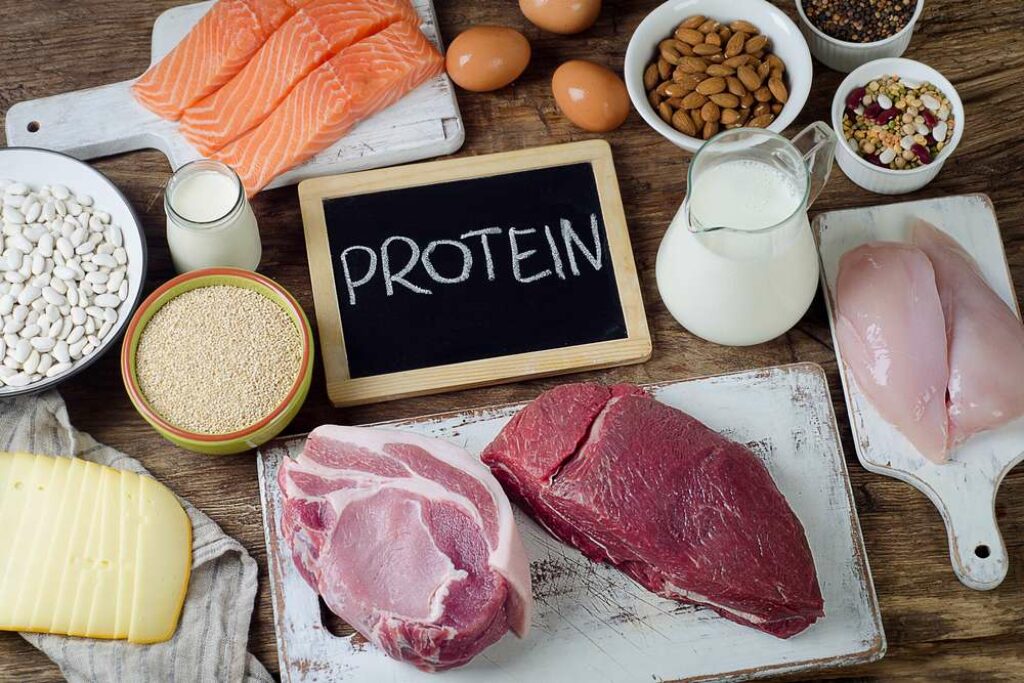
The Advantages And Disadvantages Of A High Protein Diet For Seniors
In today’s day and age, new dietary trends, suggestions and ideas seem to pop up every week. But when it comes to protein, there is no doubt whatsoever of its supreme importance to our health and wellbeing, no matter the age. But just like all nutrients, moderation matters.
Related Topics (Sponsored Ads):
In a nutshell, we need a good amount of protein every day in order to maintain good health, improve muscle and bone strength, prevent muscle loss and so much more. However, for seniors in particular, extensive research has shown that too much protein in their diet can have a number of advantages and disadvantages in many individuals. This is especially true if they have certain underlying health conditions that make it hard, dangerous or even life threatening to digest all that extra protein intake.
Listed below are the primary advantages and disadvantages of a high protein diet for senior citizens.

Improves Muscle Mass And Bone Health
As we age, our bodies gradually lose muscle mass, which can lead to weakness and frailty. Adding more protein to our diet helps maintain muscle mass and strength, as it provides the necessary building blocks for muscle growth and repair. Protein is also essential for maintaining bone health, as it helps to increase bone density. This can reduce the risk of fractures and falls, especially in the senior community.
Aids In Weight Management And Blood Sugar Control
A high protein diet can also help with weight management. This is because protein is more satiating than carbohydrates or fats, And thus helps to reduce appetite and promote feelings of fullness. As a result, this can be very beneficial with preventing overeating and weight gain.
Seasoned individuals are also at a higher risk of developing type 2 diabetes, because there is a reduced ability to control blood sugar levels. But fortunately, there is a way to prevent it from developing or getting worse. By simply increasing your daily consumption of protein, this will regulate blood sugar levels and prevent insulin spikes after meals. This is all thanks to the fact that protein takes longer to digest than carbohydrates, providing a slow and steady release of glucose into the bloodstream that’s easier for your pancreas to handle.
As previously mentioned, while increasing daily protein intake certainly has various benefits, it can also cause some significant issues for certain individuals. It can be a problem for those who have the following conditions.
Weak Kidneys
A high protein diet can put a strain on the kidneys, which may be a concern for those who already have reduced kidney function. This is because the kidneys are responsible for filtering waste products from the blood, including urea, which is produced when protein is broken down. Consuming too much protein can increase the workload on the kidneys and potentially lead to kidney damage, or even kidney failure in severe cases.
If there are any kidney issues, it is vital to first speak with your healthcare provider before making any changes to your diet, in order to determine the appropriate amount of protein that is safe for you to consume.
Digestive Issues
Excessive protein in some people may lead to digestive issues, such as constipation, due to natural changes in their digestive system. A high protein diet can exacerbate these issues, as protein is harder to digest than other nutrients.
It is very beneficial to consume adequate amounts of fiber and fluid to help prevent constipation. Additionally, you may want to consider consuming protein sources that are easier to digest, such as eggs, nuts or tofu.
Lastly, if you have digestive issues, it’s best and safest to steer clear from lactose filled dairy products, especially if you’re lactose intolerant. In this case, taking a lactose supplement may not be very effective, as the stomach and intestines are already struggling with the digestion process.
Dehydration
Consuming a lot of protein can lead to dehydration, particularly if it is accompanied by a low intake of fluids. This is because protein requires more water to be metabolized than other nutrients. Some people may already be at a higher risk of dehydration due to age-related changes in their body, such as a decreased sense of thirst and a reduced ability to conserve water. Thus, it is essential to monitor daily fluid intake, and drink at least 8 cups of water per day.
Increased Risk Of Cardiovascular Disease
Some studies have strongly suggested that a diet high in animal protein may increase the risk of cardiovascular disease. This is because animal protein often contains a lot of saturated fat, which can lead to the build-up of plaque in the arteries and increase the risk of heart disease.
Therefore, those who are concerned about their heart health may want to consider changing things up a bit. Try reducing animal proteins and replacing them with plant – based proteins that are lower in saturated fats, such as beans, lentils or quinoa.
Final Thoughts
Whether you’re a senior or not, it’s always safest to first consult with your healthcare provider before making any significant changes to your diet, particularly if there are any concerns about your current status of health or kidney function.
Overall, the agreed consensus is that a balanced diet that includes moderate amounts of protein and a wide variety of nutrient-dense foods is the best approach for maintaining optimal health.




